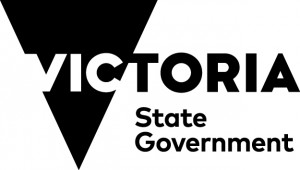The race to inclusion
Sport and Recreation Victoria supports the sport and recreation sector to be inclusive that’s why we were proud to have had Hannah Mouncey, trans athlete as a keynote speaker at our recent inclusion forum on 23 July.
Hannah Mouncey is passionate about her experience as a trans athlete, what Victoria is doing well, and where there is still much to be done for sport to be fully inclusive.
The national men’s handballer became a women’s handballer after she transitioned and has also played community women’s football for the Darebin Falcons.
She told a packed house that people from LGBTI backgrounds had much higher levels of suicide, feeling excluded and being bullied than the general population, and sport had a crucial role to play in changing that.
“Sport is the most inclusive environment I have found,” she said.
By nature, most community sports clubs have a diverse range of players and participants, so they are already quite inclusive and a good building block to develop further inclusiveness.
“We need to use that.”
Hannah said policies are great, but haven’t been matched yet with all players accepted and welcome.
“Sports clubs and officials out there are ready for change, but maybe they just don’t realise what needs to be done.”
To her, whether it be indigenous, LGBTI, or any other inclusion, the key is consultation.
“Organisations like Proud 2 Play are a fantastic resource – you need to use them,” she said.
Hannah cited Cricket Victoria as a great example of best practice, with its policies now adopted by Cricket Australia making it a world leader in inclusive sport.
Education was also a key factor, with Hannah saying perception is still a major barrier.
“I’ve found climate change and trans science are areas where people are quite happy to ignore the science, simply because they don’t like what they see.”
When people see her 188 cm frame they are often intimidated, and this has led to negative comments and negative media.
She said it was hurtful, but mostly it was just plain inaccurate as people did not realise the facts that the transitioning process left people like her nowhere near her former physical power.
She stressed that her teammates at the Falcons were very supportive, and once other teams played against her their initial apprehensions disappeared and she felt very welcomed.
Despite that, she accepted there would always be denialists.
In terms of drawing a line in the sand, Hannah said there needed to be rules when it was imperative, but this was predominantly in elite competition… whereas in community sport issues just tended to sort themselves out with people playing a level that was comfortable for all concerned.
Her overall message was inspirational though and she praised Victorian sport for its real passion to make a difference.
Sport and Recreation Victoria supports the sport and recreation sector to be inclusive, accessible and welcoming to all Victorians through initiatives such as Together more active
Published 24 July, 2019 by Sport and Recreation Victoria. To view the original media release, click here.




















